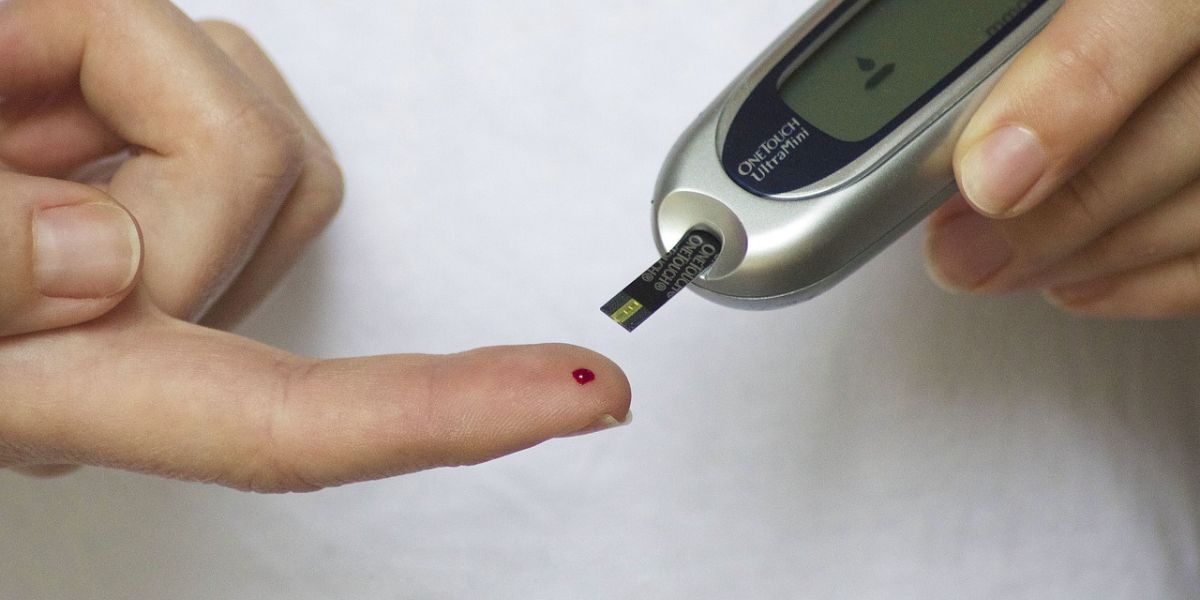Beware! Foods That Can Increase Your Blood Sugar, Don't Take It Lightly!
Discover various types of food that can trigger spikes in your blood sugar!

Kapanlagi.com - Eid al-Fitr is a highly anticipated time to gather and enjoy a variety of delicious dishes with loved ones. However, for those who are vulnerable to diabetes, this moment can pose a unique challenge. Traditional Eid dishes are usually rich in carbohydrates and sugars, which can trigger unwanted spikes in blood sugar levels.
Therefore, it is crucial to know effective steps to take after the Eid celebrations to keep blood sugar levels stable. Managing portion sizes and exercising regularly are some strategies that will be discussed further, so you can celebrate Eid in a healthier and safer way.
Here are some methods you can apply to prevent an increase in blood sugar levels after Eid.
The first thing to do is to control your portion sizes. Don’t let yourself get tempted to eat all the dishes available. Eat in small portions and enjoy every bite. Prioritize balanced nutritious foods, not just those that are delicious. Avoid eating until you are full to keep your blood sugar levels in check.
2. Limiting Sugar and Saturated Fat Intake
Cookies, sweet drinks, and high-fat foods like rendang and opor are major sources of sugar and saturated fat. Therefore, it is important to limit the consumption of these foods. As an alternative, choose fresh fruits as a healthier dessert.
3. Increasing Fiber Intake
Fiber can help slow down the absorption of sugar into the blood. Therefore, increase your intake of fiber-rich vegetables and fruits. Vegetables can also be a good accompaniment to rich fatty dishes during Eid. This way, you can keep your blood sugar levels stable.
4. Increasing Water Intake
Plain water is essential to help the kidneys eliminate excess sugar through urine. Therefore, reduce sweet drinks and replace them with plain water. In addition, plain water also helps you feel full, which can reduce the desire to overeat.
5. Exercise Regularly
Exercise is an effective way to lower blood sugar levels. Engage in light exercise regularly, such as walking or aerobics, even after Eid. By exercising, your body will be better at using glucose as energy.
Optimal sleep quality has a significant impact on your blood sugar levels. Lack of sleep can trigger an increase in cortisol hormone, which can ultimately raise blood sugar levels. Aim to get at least 7 hours of sleep each night so your body can function optimally.
7. Be Wise in Choosing Foods
When attending social gatherings, be wise in your food choices. Prioritize consuming foods rich in vegetables and fruits, and limit foods high in sugar and fat. This step is important to maintain your health after the Eid celebrations.
8. Monitor Blood Sugar Levels
For those suffering from diabetes, regularly monitoring blood sugar levels is essential, especially after Eid. If you notice a significant increase, contact a doctor immediately for appropriate treatment.
9.Avoid Eating Late at Night
Consuming snacks or heavy meals close to bedtime can trigger an increase in blood sugar levels. Therefore, it is advisable to stop snacking after dinner to keep blood sugar levels stable.
10.Counting Carbohydrate Intake
For diabetes sufferers, counting carbohydrate intake is an important strategy for controlling blood sugar levels. Consult a nutritionist or doctor for proper guidance on carbohydrate intake that suits your needs.
1. What should be done if blood sugar levels increase after Eid?
Consult a doctor immediately to get the appropriate treatment and adjust your diet.
2. Is everyone who celebrates Eid at risk of experiencing increased blood sugar?
No, but those with a history of diabetes or high risk are more vulnerable to blood sugar spikes.
3. How to choose healthy food during Eid?
Choose foods rich in vegetables and fruits, and limit high sugar and fat foods.
4. Is exercising after Eid meals important?
Yes, exercising can help the body use glucose as energy and lower blood sugar levels.
(kpl/mni)
Cobain For You Page (FYP) Yang kamu suka ada di sini,
lihat isinya
Discover various types of food that can trigger spikes in your blood sugar!
If you are confused about what side dish to look for, some vegetable menus can be a choice. Here are some practical vegetable recipes that you can try to meet your daily nutritional needs.
If fried foods usually dominate, this time steamed takjil recipes can be a healthier choice. Here are some inspirations for steamed takjil recipes that are guaranteed to be loved by the family.
Celebrate Eid with joy without fear of uric acid attacks! Discover delicious and healthy recipes that are low in purines, plus smart tips to maintain health during the festive season. Enjoy the special moments without worry!
Discover fresh and healthy fruits for refreshing and nutritious iftar takjil.
To maintain health, it is important to eliminate formaldehyde from fresh fish. Don't worry, the method is very easy! Just use one kitchen ingredient that is definitely in your home. Find this practical solution and enjoy safer fresh fish!
After celebrating Eid, it's time to refresh your body with natural detox! Improve your health and enhance digestion with simple methods. Let's explore together!
Kolang-kaling, the fresh jelly that often adorns dishes, turns out to hold a wealth of benefits for body health!
This chicken recipe for suhoor can be made in a short time, perfect for families who want a delicious meal without hassle. Here is a list of chicken recipes for suhoor that can be made in a short time.
Cabbage actually holds incredible benefits for lowering high blood pressure! Rich in potassium and antioxidants, this vegetable is perfect for supporting a healthy lifestyle.
By using simple ingredients like vegetables, tofu, tempeh, and corn rice, you can serve healthy and filling snack dishes.
High levels of uric acid can trigger various serious health problems, ranging from disturbing joint pain to painful kidney stones.